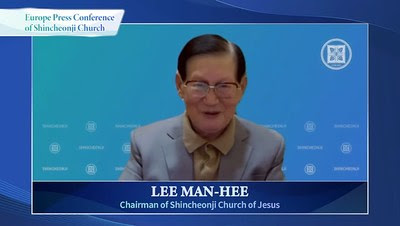Experts are calling for increased investment in Africa’s health care infrastructure to support data collection, research and development related to the COVID-19 pandemic and its subsequent impact on African economies.
In a recent discussion on VOA’s Straight Talk Africa program titled COVID-19 in Africa: Virus, Variants and Vaccines, experts pointed out that the global health crisis exposed poor health infrastructure on the continent.
Mo Ibrahim, the billionaire founder and chair of the London-based foundation that bears his name, spoke about inequality in vaccine distribution at the height of the pandemic.
“The vaccine apartheid did not help the situation for Africa,” Ibrahim said. However, he said he remains “quite optimistic that the pandemic in a strange way will help us move forward.”
“Going forward, we need to manufacture our own vaccines,” he said. “We should not rely on the goodwill or the sensible behavior of others.”
Last Friday, the World Health Organization announced that six African nations would be the first on the continent to receive the technology necessary to produce mRNA vaccines. The countries are Egypt, Kenya, Nigeria, Senegal, South Africa and Tunisia.
Health experts around the world have raised concerns over the unequal distribution of vaccines. More than 80% of the African continent’s population has yet to receive a single dose of the COVID-19 vaccine, according to WHO.
“Much of this inequity has been driven by the fact that globally, vaccine production is concentrated in a few mostly high-income countries,” WHO Director-General Dr. Tedros Adhanom Ghebreyesus said at a European Union-African Union summit last week.
On the panel, Ibrahim highlighted Africa’s weak and overstretched health care system while stressing the lack of adequate investments and the effects of brain drain on health care.
Amid the COVID-19 crisis, more affluent countries in the Organization for Economic Co-operation and Development have lured migrant doctors and nurses with measures such as higher pay, temporary licensing and eased entry, the OECD has reported.
WHO recommends at least one physician for every thousand people. Some African countries, such as Ghana and Chad, had as few as 0.1 medical doctors per thousand in 2019, according to World Bank data.
Panelist Aloysius Uche Ordu dispelled the assumption that infectious diseases always come from poor countries.
“We tend to look at Africa as the place where infectious diseases start. Well, that did not happen with COVID,” said Ordu, who directs the Africa Growth Initiative at Brookings Institution, a Washington-based think tank. “COVID started with a rich country and spread to other rich countries. In fact, Africa came into the picture later on.”
An official with the Africa Centers for Disease Control and Prevention said the continent has done a laudable job of dealing with the virus.
“We have kept the numbers low. We have mobilized our political leadership from the very top all the way down to our technical teams,” said Dr. Ahmed Ogwell Ouma, deputy director of the Africa CDC. “We have mobilized the public, and Africa has largely addressed this pandemic as a group. And this is unprecedented, and I will give us a very, very good mark.”
But the dean of health sciences at the University of Witwatersrand in South Africa disagrees.
Professor Sabir Madhi noted that his country’s disproportionately high COVID-19 death toll is largely due to “much more robust” contact tracing and data collation tools than other African nations.
South Africans “constitute less than 5% of the African population yet have contributed 45% of all (COVID-19-related) deaths on the African continent,” he said.
The country of nearly 60 million people has Africa’s highest number of recorded infections and deaths — a total of 3.6 million cases and nearly 99,000 deaths as of this week, according to the Johns Hopkins University’s Coronavirus Resource Center. The center has recorded more than 420 million COVID-19 cases globally and nearly 6 million deaths.
South Africa is emerging from a fourth wave of the pandemic, largely driven by the omicron variant. According to local scientists, the variant no longer leads to high hospitalization rates and deaths in the country, a huge relief for a population reeling under lockdown fatigue.
Madhi told VOA the continent has failed to learn from experiences with the 2009 swine flu, which emphasized the need for good data collection.
He added that “the impact of the pandemic on Africa will, unfortunately, be realized only after the pandemic has passed.”
US support
The United States has committed to helping the world combat the virus. President Joe Biden pledged to donate over 1.2 billion doses through COVAX, the international vaccine-sharing initiative supported by the U.N. and the health organizations Gavi and CEPI. The initiative aims to ensure the equitable distribution of vaccines to developing countries.
So far, the U.S. has donated more than 450 million doses globally, with more than 120 million doses going to 43 countries in sub-Saharan Africa, according to the State Department.
Ordu said it has become imperative to strengthen STEM (Science, Technology, Engineering and Mathematics) in Africa. This, he contended, would be a sure way to overcome any future health crisis.
“Because of the growing youthful population in Africa, it is important that STEM education is an area of focus, particularly for women and girls,” he said.
Source: Voice of America


